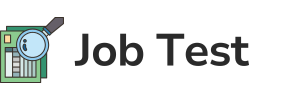Tests for People Who Want to Work With Animals: Finding Your Path in Animal-Focused Careers
- 23 May 2025

For animal lovers seeking to transform their passion into a profession, the range of potential career paths is far more diverse than many realize. From veterinary medicine to wildlife conservation, animal behavior research to shelter management, animal-focused careers span various education levels, work environments, and skill sets. Specialized career assessments can help identify which animal-related fields best match your specific interests, strengths, and values.
Working with animals encompasses vastly different day-to-day realities depending on the specific path chosen. Some roles focus on direct animal care, while others involve research, education, advocacy, or business aspects of animal industries. The right assessment tools help clarify which environments and activities will provide the most sustainable and fulfilling career experience.
Types of Animal-Related Career Paths
Before exploring assessment options, understanding the breadth of animal-focused career categories provides important context:
- Clinical Animal Care - Veterinary medicine, veterinary nursing, animal rehabilitation, animal physiotherapy
- Animal Management - Zookeeping, animal training, shelter management, sanctuary operations, farm management
- Wildlife & Conservation - Field research, conservation education, wildlife rehabilitation, park rangering
- Animal Science & Research - Animal behavior studies, zoology, marine biology, genetics, nutrition science
- Animal Services - Grooming, pet sitting, dog walking, animal boarding, specialized pet care
- Animal Education & Advocacy - Humane education, policy development, non-profit leadership, animal welfare law
Key Factors in Animal Career Assessment
| Assessment Factor | Questions to Consider | Career Implications |
|---|---|---|
| Animal Type Preference | Which species do you connect with most? Domestic, farm, exotic, wildlife? | Determines appropriate work settings and specializations |
| Interaction Style | Do you prefer direct care, training, observation, or advocacy? | Guides choice between hands-on versus policy or research roles |
| Physical Demands Tolerance | Are you comfortable with physical work, potential injury risk, outdoor conditions? | Affects suitability for fieldwork, large animal care, or clinical roles |
| Emotional Resilience | How do you handle animal suffering, euthanasia decisions, or treatment limitations? | Critical for clinical, shelter, and emergency response positions |
| Scientific Interest Level | Do you enjoy data collection, analysis, and research methodologies? | Indicates fit for research-oriented versus direct service roles |
Recommended Animal Career Assessment Tools
Several specialized assessment resources can help clarify your optimal path in animal-focused work:
Animal Career Interest Profiler - Comprehensive assessment specifically for animal-related fields, mapping interests to specific career categories
Veterinary Career Aptitude Test - Focuses on suitability for various roles within veterinary medicine and animal health
Wildlife Conservation Career Assessment - Evaluates fit for field research, conservation education, and wildlife management
Animal Science Pathway Finder - Identifies optimal specializations within animal sciences based on interests and aptitudes
Education and Experience Planning
Assessment results should inform not just career direction but also education and experience pathways. Animal careers vary dramatically in their requirements, from doctoral-level education for veterinarians and researchers to certificate programs for many animal care technician roles. Understanding which paths align with your interests helps prevent unnecessary investment in credentials that don't serve your specific goals.
Experience requirements also vary significantly. Many animal organizations value hands-on experience as highly as formal education. Assessment insights can guide volunteer, internship, and entry-level job choices that build relevant skills for your target fields.
Reality Testing Through Experience
Beyond formal assessments, reality testing through volunteer work provides invaluable insights about animal career fit. Many animal lovers discover that their romanticized notions of certain fields don't match day-to-day realities. Volunteering with animal shelters, wildlife rehabilitation centers, veterinary clinics, or conservation organizations offers practical exposure to help confirm assessment findings.
With insights from specialized assessments and strategic experience-building, you can identify animal-focused career paths that align with your specific strengths and values. The right assessment tools help ensure your passion for animals translates into sustainable professional satisfaction rather than disillusionment, creating both personal fulfillment and meaningful contributions to animal welfare.



